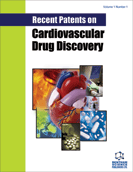Abstract
The goal of drugs is to modulate the activity of particular gene products in order to change the physiological state of an organism from disease to health. Because of the complexity of development and metabolism, it is difficult to extrapolate from in vitro experimental results using purified reagents, to predict the actual change in behavior of an entire biological system in vivo. Metabolic control analysis provides a theoretical framework for understanding the basis of this apparent paradox. In practice, genetics provides a unique opportunity to observe the behavior of whole systems in the presence of different amounts of a particular gene product, resulting from varying genomic sequences of alleles governing the expression or activity of that gene product. This is most evident in the case of monogenic disorders, in which severe mutations in a gene lead to clear effects on gene product activity, and strong causal genotype/phenotype correlations can be inferred. Among the many therapeutic targets currently in development for treatment of dyslipidemia, a major risk factor for cardiovascular disease, there is particular interest in those targets whose coding genes are associated with molecularly characterized monogenic human conditions. Herein a selection of these genetic disorders, especially those involving HDL and LDL cholesterol, is discussed in the context of ongoing or potential therapeutic development programs. This article also includes recent patent review coverage.
Keywords: Genetics, cholesterol, HDL, LDL, metabolic control analysis, apolipoprotein A1, apolipoprotein B, ABCA1, CETP, PCSK9
 2
2


